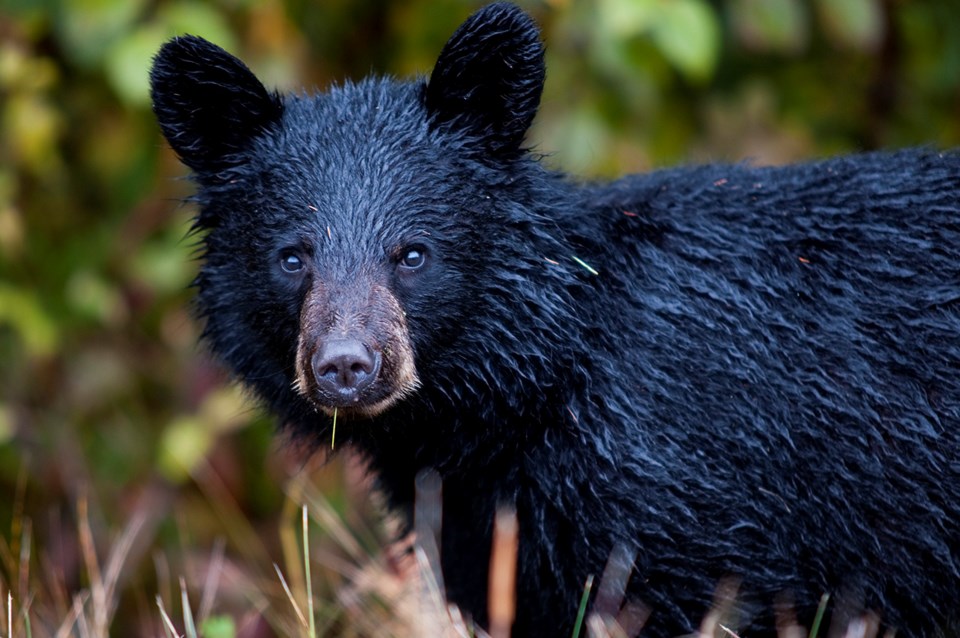The global attention and outrage over the recent killing of Cecil the Lion by an American hunter in Zimbabwe has raised the long-debated issue of the hunting of black and grizzly bears closer to home.
“[B.C.] is known in North America as a good place to come and kill bears,” said Sara Dubois, BC SPCA chief scientific officer.
“A lot of people think that unfortunately our methods are too aggressively lethal [in B.C.] and that we are too liberal in our hunting.”
There is no legal hunting of grizzly bears in regions where the population is threatened, such as around Squamish, but there is hunting for black bears in the region around the outskirts of the district.
Dubois said some communities, like Squamish, have progressive municipal bylaws to help protect bears from human-bear conflict, but the province lets tourists come and kill bears.
Provincial hunting regulations state that in the region around Squamish, hunters are allowed two black bears per hunter during the spring and fall hunting season.
An estimated 120,000 to 160,000 black bears are in the province, according to the Ministry of Forests, Lands and Natural Resource Operations.
The average annual killings from 2011-2013 was 3,973 black bears or an overall harvest rate of 2.8 per cent.
One or two black bears is allowed per bow-hunter during a season, depending on the exact location.
The SPCA does not support bow hunting.
“We don’t support trophy hunting or anything using bows and arrows because most people are just not a good enough shot to kill the animal on first strike,” said Dubois.
The situation of the killing of Cecil the Lion is unclear, according to Scott Ellis, executive director of the Guide Outfitters Association of British Columbia.
He said he recognizes the backlash in the media over the lion – to a point.
“I get that some that are opposed to hunting, or whatever trophy hunting is I don’t even know, but those who are opposed to whatever that buzzword means, yup those people are opposed to hunting regardless of wherever it is,” he said.
He said what he likes about the uproar over the lion is that there is a lot of concern about wildlife.
“I think that at the end of the day the commonality there is that… hunters are concerned about the species, they are concerned about the habitat,” he said.
“They pay to use a service, they have typically a sustainable-use philosophy.”
He said not all hunters who use his guides kill anything. “You buy the experience, you don’t buy the animal,” he said.
For non-residents, black bear is the most popular big game they are after through Ellis’s organization, followed by moose. More than 60 per cent of his clients do get a black bear, he estimated.
His clients bagged a total of 1,999 black bears last year. “Black bears are doing very, very well,” he said.
The province agrees.
“Black bears are not at risk in B.C., and their population status is considered healthy,” said a provincial spokesperson.
Dubois said even if a population is healthy, there is an impact when an animal is taken.
“Often the animals that are being removed are a part of an environmental system so there are knock-off effects of removing those animals, and we don’t really fully understand them,” she said. “You may think that we have a lot of them, but removing those social dynamics within groups, within ecosystems, we might actually be having a much bigger impact than removing one animal.”
Ellis said resident hunting has increased about 30 per cent over the past decade, in part because more people want to know what they are eating and have a desire to obtain their own meat.
“People are more concerned about food,” he said. “The 100-mile diet is important, and knowing that it is free range and hormone free.”
“Myself as a typical hunter coming from three generations of hunting and a family that hunts together, we care about the habitat, the wildlife, we have a philosophy, ‘Leave it better than you found it,’ we volunteer, we donate to clean up or enhancement projects, we donate money and are happy to pay for the ability to go hunt, and it is something we look forward to all year.”
The B.C. Wildlife Federation, Guide Outfitters Association and BC Trappers Association are members of the Provincial Hunting, Trapping and Angling Team, which provides advice to the province on hunting, fishing and trapping regulations, according to a provincial spokesperson.
Regulation proposals are also posted on the hunting and trapping engagement site for public review and comment.




